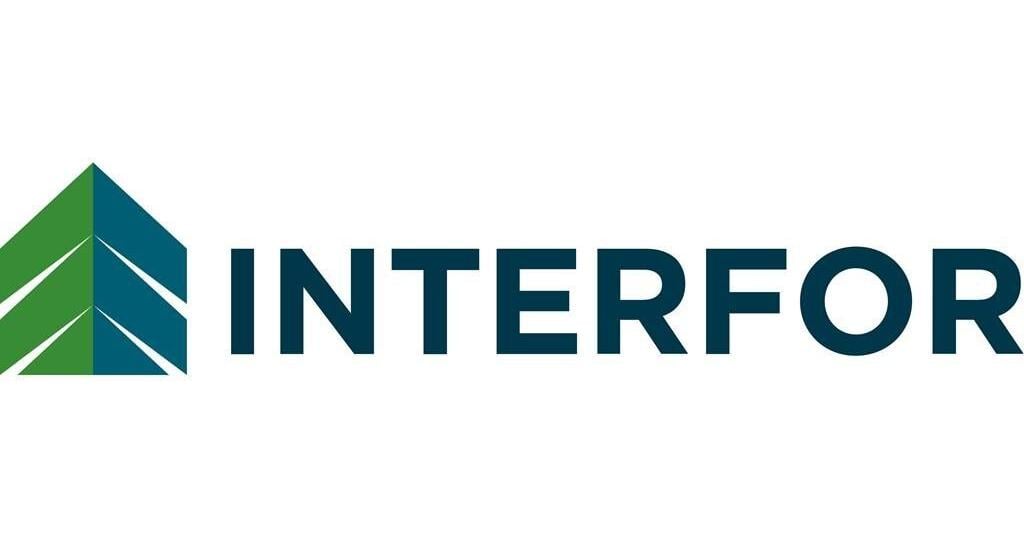Register now for FREE unlimited access to Reuters.com
Register
/cloudfront-us-east-2.images.arcpublishing.com/reuters/6AIESMOGLJLIJGQETKFIWUSZGA.jpg)
An electronic stock quotation board is displayed inside a conference hall in Tokyo, Japan November 1, 2021. REUTERS/Issei Kato
Register
HONG KONG, Jan 25 (Reuters) – Asian shares and U.S. futures tumbled on Tuesday after a tumultuous Wall Street session, with investors nervous about the situation in Ukraine and eyeing the U.S. Federal Reserve amid worries about a move to tighter monetary policy globally.
NATO said on Monday it was putting forces on standby and reinforcing eastern Europe with more ships and fighter jets, in what Russia denounced as Western “hysteria” in response to its build-up of troops on the Ukraine border. read more
MSCI’s broadest index of Asia-Pacific shares outside Japan (.MIAPJ0000PUS) shed 1.2%, falling to its lowest in a month, and Japan’s Nikkei (.N225) skidded 2% to its lowest level since August.
Register
There were sharp declines around the region. Hong Kong (.HSI) lost 1.64% and Korea’s KOSPI (.KS11) fell 1.67%. The Australian benchmark (.AXJO) tumbled 2.73% to hit an eight-month low, hurt also by a high inflation print Tuesday morning that stoked fears of approaching rate hikes Down Under. AZN0236PW
Asian markets were being dragged lower by concerns about faster U.S. rate hikes, mounting tensions over Ukraine, rising inflation and higher oil prices, said Carlos Casanova, senior economist at UBP.
“But on the upside, valuations are becoming more attractive and earnings growth are still robust for some sectors. So I think we will see a tug of war in the market for this week,” he said.
U.S. futures also fell in Asian hours, Nasdaq futures (.NQc1) shed 1.2% and S&P500 futures lost 0.95%, after U.S. stock markets had recovered strongly late in the session to close higher, recouping steep losses made early in the day, as bargain-seeking investors snapped up shares.
The Dow Jones Industrial Average (.DJI) finished up 0.29%, the S&P 500 (.SPX) gained 0.28% and the Nasdaq Composite (.IXIC) added 0.63%.
Keeping traders on their toes, the Federal Reserve will begin its two-day meeting later on Tuesday, with investors starting to speculate that there is a small possibility that they will announce a surprise rate hike.
Investors are also anxiously looking out for any hints about the timing and pace of rate hikes expected later this year. Money markets are priced for a first rate hike in March, with three more quarter-point increases by year-end.
However, U.S. benchmark Treasuries were sitting out some of the speculation. Yields on benchmark 10 year notes were at 1.76%, steady on the day, having finished a choppy day of trading Monday near where they started.
Singapore’s central bank also tightened monetary policy on Tuesday in an out-of-cycle move. read more
Market nerves sent the dollar higher against most peers. The dollar index was at 95.922, hovering near a two-week high, having gained 0.29% overnight. FRX
The Aussie dollar gained briefly after the high inflation print, but failed to hold on to its gains and the risk friendly currency was still hovering near the one-month low hit the day before.
Oil prices were also elevated, further worrying stock investors. U.S. crude rose 0.5% to $83.73 per barrel and Brent crude was at $86.83, up 0.65%.
Gold held on to its recent gains as investors sought safety. The spot price was at $1,841 an ounce, flat on the day but near last week’s two-month high of $1,847.7.
Register
Reporting by Selena Li, Xie Yu and Alun John; editing by Richard Pullin
Our Standards: The Thomson Reuters Trust Principles.

Digital platforms like Uber, Airbnb and Etsy have made it easier than ever to make some extra cash on the side, but experts say you need to be diligent about tracking and reporting that additional income, or risk the consequences.
“Especially in the first year … make sure that if you’re not familiar with how to report self-employed income, seek assistance and get it right, rather than take the risk of getting it wrong. It’ll take a lot longer and cost a lot more to fix it,” said Bruce Goudy, director of BDO Canada’s indirect tax practice.
More and more Canadians are earning income from websites and apps, whether they’re renting out a property on Airbnb, delivering food through Uber Eats, or doing graphic design on Fiverr.
In December 2023, 927,000 people ages 15 to 69 years old said they had earned money from a digital platform in the preceding year, said Statistics Canada. This included platforms that pay workers directly and those that connect workers with clients.
If you earn money through a digital platform, you are considered self-employed, said Stefanie Ricchio, a chartered professional accountant and spokesperson for TurboTax Canada.
Instead of the standard T4 tax form you get from an employer, you’ll need to report your self-employment income on a T2125 form when you file your taxes.
As well as your income, you also need to report your expenses, said Ricchio. These expenses can include home office costs, car maintenance, and even the fees you pay to the digital platform — there are hundreds of deductions available, she said.
“The more eligible deductions that you apply to that income, the less that tax bill is going to be when you file.”
Because you’re generally not collecting taxes when you earn money on a digital platform, you need to be prepared to pay those taxes when you file, said Ricchio. She recommends setting aside about a quarter of your income for this purpose.
For those who are new to being self-employed, it can require a big mindset change, she said.
Once you’re earning $30,000 or more over four consecutive quarters, you have to register for a GST/HST account, said Ricchio, though you can voluntarily do it earlier.
But if you are providing rideshare services, you have to sign up right at the beginning, she said.
“It’s immediate because you start charging GST, HST immediately.”
This threshold might take some sellers by surprise, said Goudy, which is why it’s important to monitor your revenues closely so you’re not caught off guard.
Goudy noted that since Canada has several different sales tax jurisdictions, sellers should make sure they’re aware of those implications — tax obligations are based on where the customer is located, not the seller.
Canada recently introduced new reporting rules for digital platform operators, which came into effect this year. The rules themselves target the platforms, but could affect people working through those platforms too.
Certain platforms are now required to collect and report information to the Canada Revenue Agency on sellers who live in Canada or in countries that have implemented the same rules, and who sell to people in Canada or those countries, according to the CRA. This information may include identifying details like names and addresses, platform fees, property locations (if applicable) and payment details.
“What pre-empted this is obviously the rise of e-commerce, digital, the digital transaction community,” said Ricchio.
“They know that they have been missing transactions that have gone unknown to the CRA … so this is now the mechanism to help them capture it, to ensure that everyone is paying tax where they should be on that income.”
Sellers may be asked for additional information so the platform can fulfil these obligations, the agency added.
If a seller doesn’t provide their tax identification information to the platform, they can be fined $500, the CRA said.
Certain sellers are excluded from these obligations, including those with “less than 30 relevant activities for the sale of goods” and for whom the total amount paid or credited was below $2,800 during the reportable period, according to the CRA.
Sellers need to make sure they do their due diligence and comply with all their reporting requirements, said Goudy, as what they file has to match what the platform reports.
Non-compliance can result in penalties, he said, as well as any penalties or interest on unpaid taxes.
“The CRA is going to be able to cross-check this information readily available,” he said.
“If the sellers were not compliant before … then it’s going to be pretty obvious.”
Another change this year is that if you operate a short-term rental in a designated province or municipality where you’re not allowed to do so, the CRA will disqualify your business deductions, said Ricchio.
If you’re earning digital platform income on top of your regular employment income, Ricchio said the extra money could potentially push you into a higher tax bracket.
This will not only affect your rate of taxation but could also hit any benefits you’re used to receiving, such as the Canada Child Benefit or the GST/HST credit, she said. “That’s also sometimes a shock for people.”
This report by The Canadian Press was first published Oct. 17, 2024.

BURNABY, B.C. – Interfor Corp. is selling its three manufacturing facilities in Quebec and closing its corporate office in Montreal as the lumber producer plans to leave the province and focus on other parts of the company.
Interfor chief executive Ian Fillinger says the decision to exit its Quebec operations was influenced by recent developments that have restricted the availability of economic fibre, including record forest fires in 2023.
The company says it has signed a deal to sell its sawmills in Val-d’Or and Matagami as well as its Sullivan remanufacturing plant in Val-d’Or, along with all associated forestry and business operations, to Chantiers Chibougamau Ltée (CCL) for $30 million in cash.
Interfor and CCL will also enter into a multi-year contract for the supply of machine stress rated lumber to Interfor’s I-Joist engineered wood products facility in Sault Ste. Marie, Ont.
Interfor says it expects to take an impairment charge in its third quarter associated with the announcement.
The sale does not include any countervailing or anti-dumping duty deposits related to the ongoing U.S.-Canada softwood lumber trade dispute.
This report by The Canadian Press was first published Oct. 16, 2024.
Companies in this story: (TSX:IFP)
The Canadian Press. All rights reserved.

TORONTO – TD Bank Group says The Charles Schwab Corp.’s third-quarter results are expected to translate into about $178 million of reported equity in net income for the Canadian bank’s fourth quarter.
TD says that excluding about $2 million after-tax in acquisition-related charges and $27 million after-tax in amortization of acquired intangibles, its adjusted equity in net income from its investment in Schwab will be $207 million.
TD is expected to release its full fourth-quarter results on Dec. 5.
Schwab, which keeps its books in U.S. dollars, reported Tuesday a third-quarter profit of US$1.41 billion, up from US$1.13 billion a year earlier.
On an adjusted basis, Schwab says it earned US$1.53 billion in its latest quarter compared with US$1.52 billion in the same quarter last year.
TD announced in August that it had sold 40.5 million Schwab shares. The sale reduced its interest in Schwab to 10.1 per cent from 12.3 per cent.
This report by The Canadian Press was first published Oct. 16, 2024.
Companies in this story: (TSX:TD)
The Canadian Press. All rights reserved.


Defying Convention to Deepen Connections: Booking.com’s 8 Travel Predictions for 2025


After hurricane, with no running water, residents organize to meet a basic need


Canadian men to face Suriname in CONCACAF Nations League quarterfinal


Argonauts players Kelly, McManis earn CFL top performer awards


N.B. election debate: Tory leader forced to defend record on gender policy, housing


Buhai, Green and Shin lead in South Korea after 8-under 64s in first round


In The Rings: Curling Canada still looking for Canadian Curling Trials title sponsor


Alberta government shifts continuing care from Health to Seniors Ministry